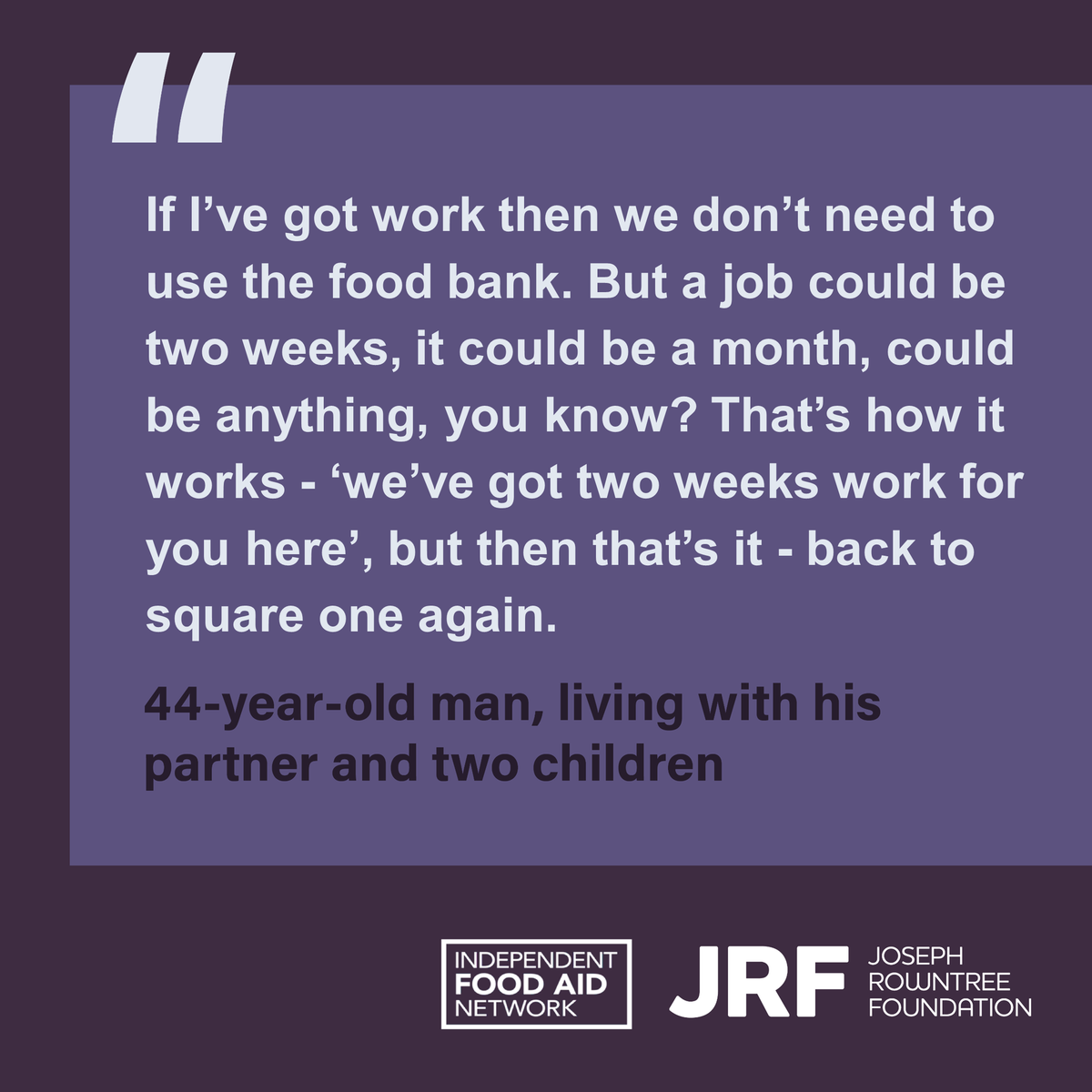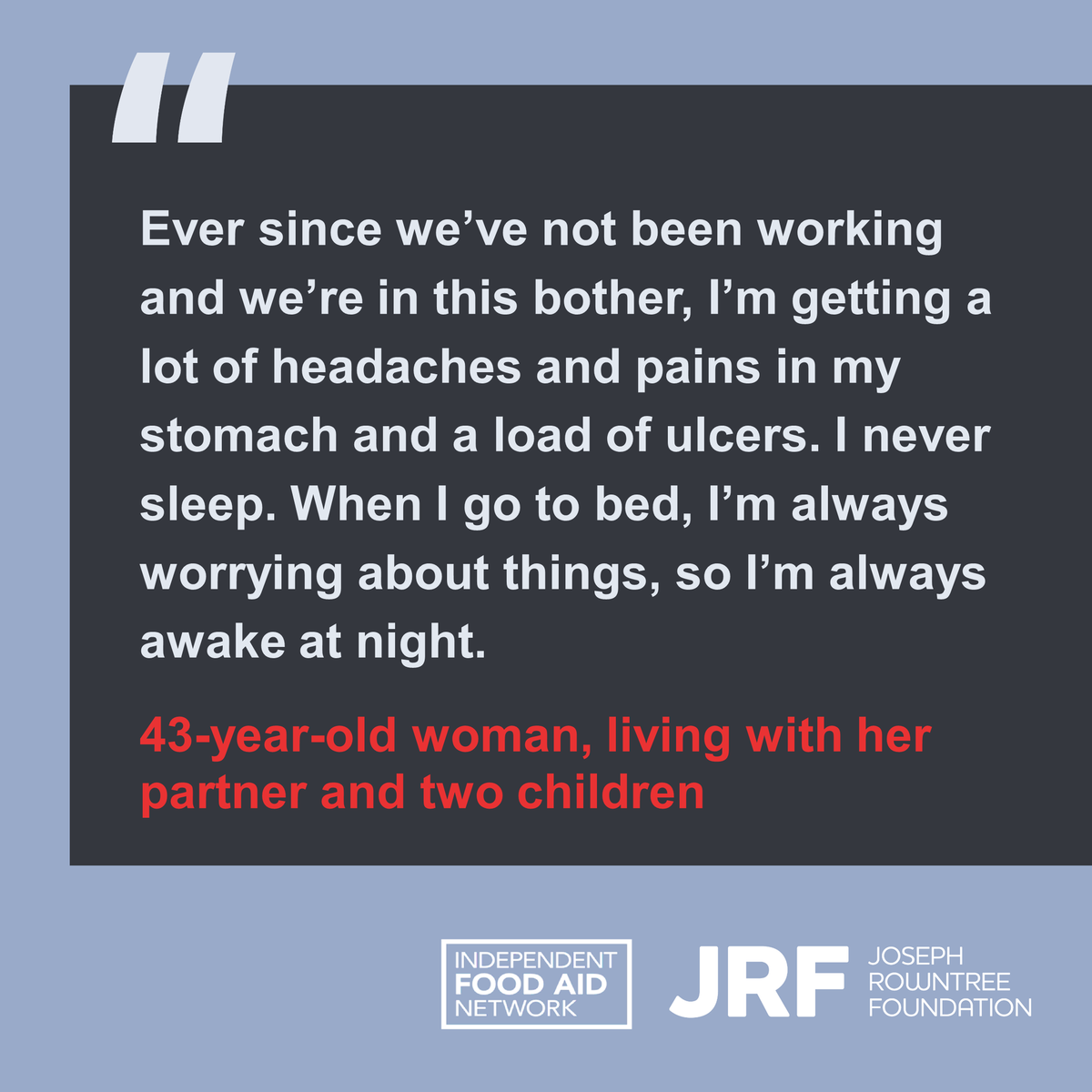I've been interviewing people using #FoodBanks about the circumstances that have led them there & the impact on their #MentalHealth
In a new @IFAN_UK & @jrf_uk report, out today & covered by @BigIssue, I describe what I heard - here are the headlines 🧵 bigissue.com/news/social-ju…
In a new @IFAN_UK & @jrf_uk report, out today & covered by @BigIssue, I describe what I heard - here are the headlines 🧵 bigissue.com/news/social-ju…
Everyone I spoke to described experiencing some feelings of shame & embarrassment about using a food bank, particularly on their first visit. Many had put off seeking support that they desperately needed because of the stigma associated with poverty & accessing food aid. 2/10 

People’s circumstances were complex & personal but the underlying reason for needing food aid was simple & universal: their income (primarily from benefits but sometimes from wages too) was inadequate to make ends meet, particularly after the £20-a-week #UniversalCredit cut. 3/10 

With fuel & food prices increasing, there was a growing gulf between the income people were receiving & the cost of meeting their basic needs. This situation is only going to get worse - inflation is set to exceed 7% in April but benefits will only be uprated by 3.1%. 4/10 

Everyone I spoke to wanted to be in work, & ideally earning enough to not need benefits, but many faced additional barriers such as health issues or caring responsibilities. Even those who were able to find work reported that it was poorly paid, insecure & unpredictable. 5/10 

The challenge of living on an inadequate income was compounded by other issues people were experiencing, such as poor quality housing, outstanding debts (often to the DWP), & problems with the benefits system. These issues were causing people a huge amount of stress & worry. 6/10 

The pressure & constant sense of struggle people were experiencing left them with little energy or 'headspace' to think much beyond the day-to-day challenges of making ends meet. People felt trapped in their current circumstances & often had little optimism about the future. 7/10 

Having to endure sustained adversity & stress was taking an inevitable psychological toll on everyone I spoke to. Even when people didn't necessarily see themselves as having mental health problems, they often described issues that were suggestive of poor mental health. 8/10 

Others spoke explicitly about experiencing anxiety & depression & suggested these issues had been directly caused or exacerbated by their difficult circumstances. Some people described having felt suicidal at times, as a direct consequence of the challenges they were facing. 9/10 

Please do take a look at the full report & share it with others.
Huge thanks to everyone I interviewed, the food banks that hosted me (@EarlsfieldFood2 in South London & @TheCommunityCu1 in Kent), & to @IFAN_UK & @jrf_uk for supporting the research. 10/10
foodaidnetwork.org.uk/blog/mental-he…
Huge thanks to everyone I interviewed, the food banks that hosted me (@EarlsfieldFood2 in South London & @TheCommunityCu1 in Kent), & to @IFAN_UK & @jrf_uk for supporting the research. 10/10
foodaidnetwork.org.uk/blog/mental-he…
• • •
Missing some Tweet in this thread? You can try to
force a refresh










